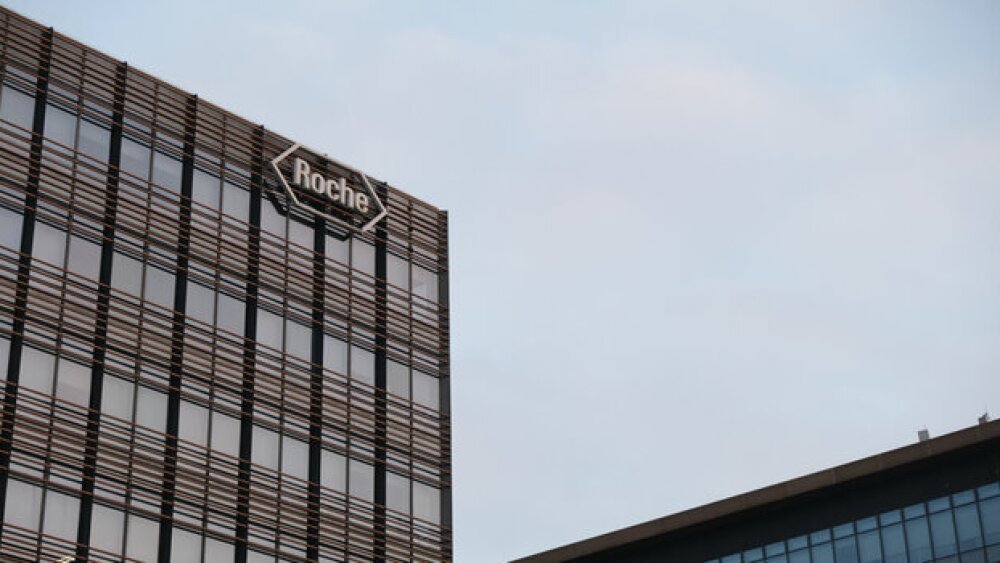Jefferies analyst Peter Welford noted that Roche’s pharma group came just slightly ahead of consensus expectations, driven by strong performance of its multiple sclerosis therapy Ocrevus and eye injection Vabysmo.
Roche on Wednesday released its third-quarter earnings report, posting nearly $17.5 billion in sales, representing 9% year-on-year growth and exceeding Wall Street expectations.
According to Jefferies analyst Peter Welford, Roche’s Q3 sales were 1% ahead of the consensus estimate. The company’s pharmaceuticals division, which remains its strongest unit with $13.4 billion in the quarter, beat analysts’ expectations by 2%.
Roche’s top-performing asset in the quarter was the multiple sclerosis drug Ocrevus, which grew 11% to bring in almost $2 billion.
Despite mounting biosimilar competition in the eye diseases space, Roche’s intravitreal injection Vabysmo continues its strong market momentum. The age-related macular degeneration (AMD) treatment surged 59% year-over-year, bringing in nearly $1.2 billion in Q3. Vabysmo, a dual inhibitor of VEGF and angiopoietin-2, is also indicated for diabetic macular edema (DME).
In May 2024, the FDA greenlit two biosimilars to Regeneron’s blockbuster therapy Eylea—Samsung Bioepis and Biogen’s Opuviz and Biocon Biologics’ Yesafili—which are expected to compete with Vabysmo in the AMD and DME markets.
On the negative side of the Q3 ledger, Roche’s PD-L1 antibody Tecentriq was “weak” in the quarter, according to Jefferies’ Welford, noting that its sales of just over $1 billion fell short of consensus estimates.
Looking forward to the rest of the year, Roche reiterated its business outlook with growth of around mid-single-digit in group sales and in the high-single-digit range for core earnings-per-share.
Opposition to Novo-Catalent Deal
On the M&A front, Roche is urging regulatory authorities to block Novo Holdings’ proposed $16.5 billion acquisition of CDMO giant Catalent, arguing that the deal would have wide-ranging negative effects on the industry.
“Limiting the competition in this space is not a good idea,” Roche CEO Thomas Schinecker said in a media call Wednesday morning, however insisting that the company itself would not be affected by the merger, according to Reuters. The acquisition would further restrict the contract manufacturing ecosystem, Schinecker said, which “could be a problem for other smaller players.”
“From an industry perspective, it would be a wrong decision by authorities” if they let the transaction proceed, according to Schinecker.
Pressure on the deal has been mounting. Last week, more than 10 unions, consumer organizations and public interest groups wrote to the Federal Trade Commission, urging the antitrust watchdog to “challenge” the proposed acquisition and to ensure that “competition is protected.”
Sen. Elizabeth Warren (D-Mass.) earlier this month also flagged potential anti-competitive concerns with the transaction. In a letter to the FTC, Warren warned that the acquisition of contract manufacturer Catalent could increase Novo Nordisk’s dominance over the hot GLP-1 market, reducing competition and increasing prices.
Referring to rival Eli Lilly, Warren said the deal could give Novo Nordisk “unprecedented visibility into and control over its competitor’s production capacity, costs, and business practices,” as well as “the ability to preference its own products and obstruct its competitors’ use of Catalent to produce GLP-1 drugs.”
Lilly CEO David Ricks said in a Q2 earnings call in August that the company remains concerned about the Novo-Catalent deal. “We do rely on one of the Catalent sites for GLP-1 and other diabetes production,” Ricks told analysts. “We’ve aired those concerns publicly and privately since the proposed transaction was announced, and we’re waiting to see what happens.”
Correction (Oct. 23): The headline of this story has been updated to accurately reflect that Novo Holdings is acquiring Catalent in a buyout and is not proposing a merger.






